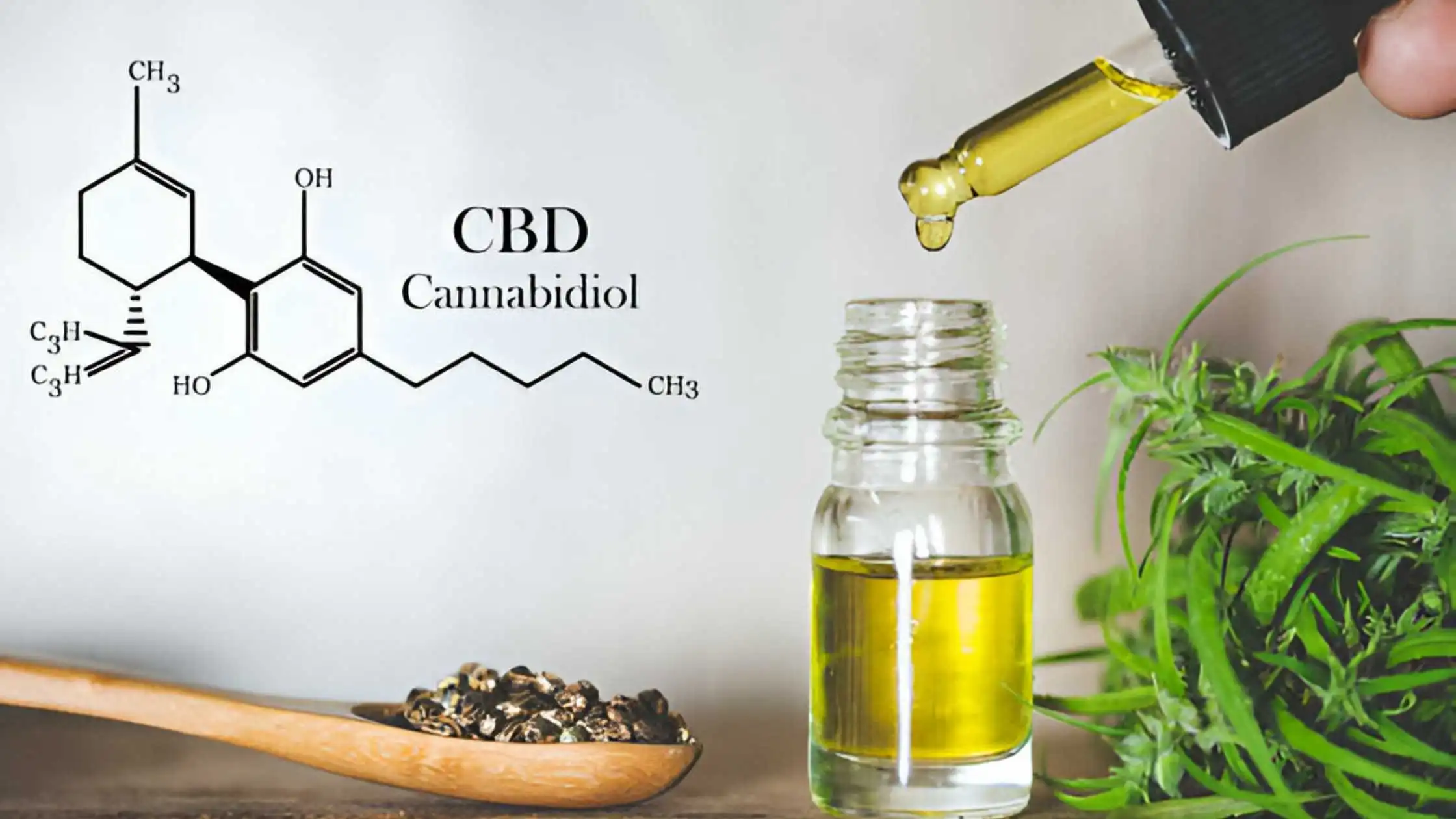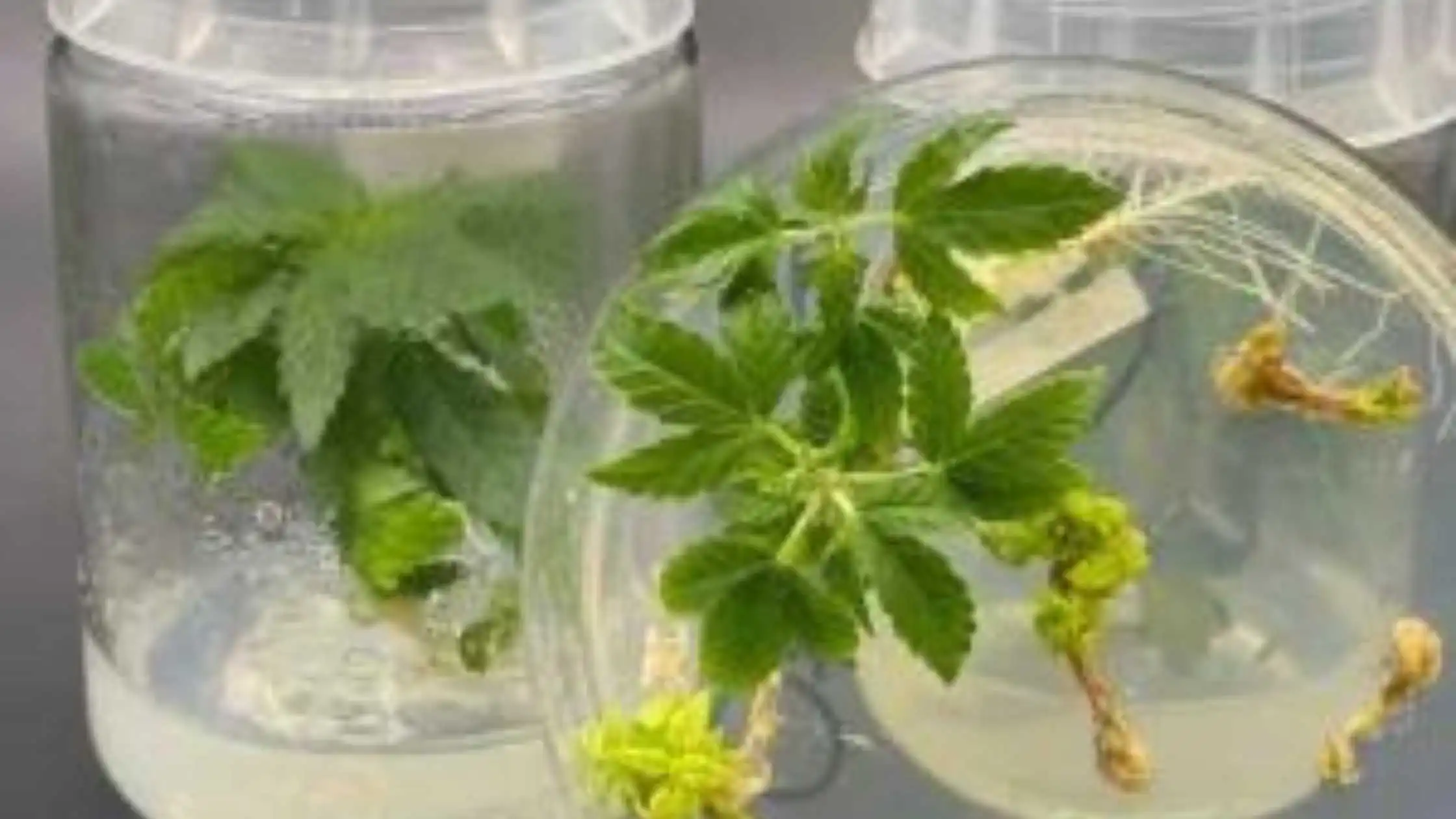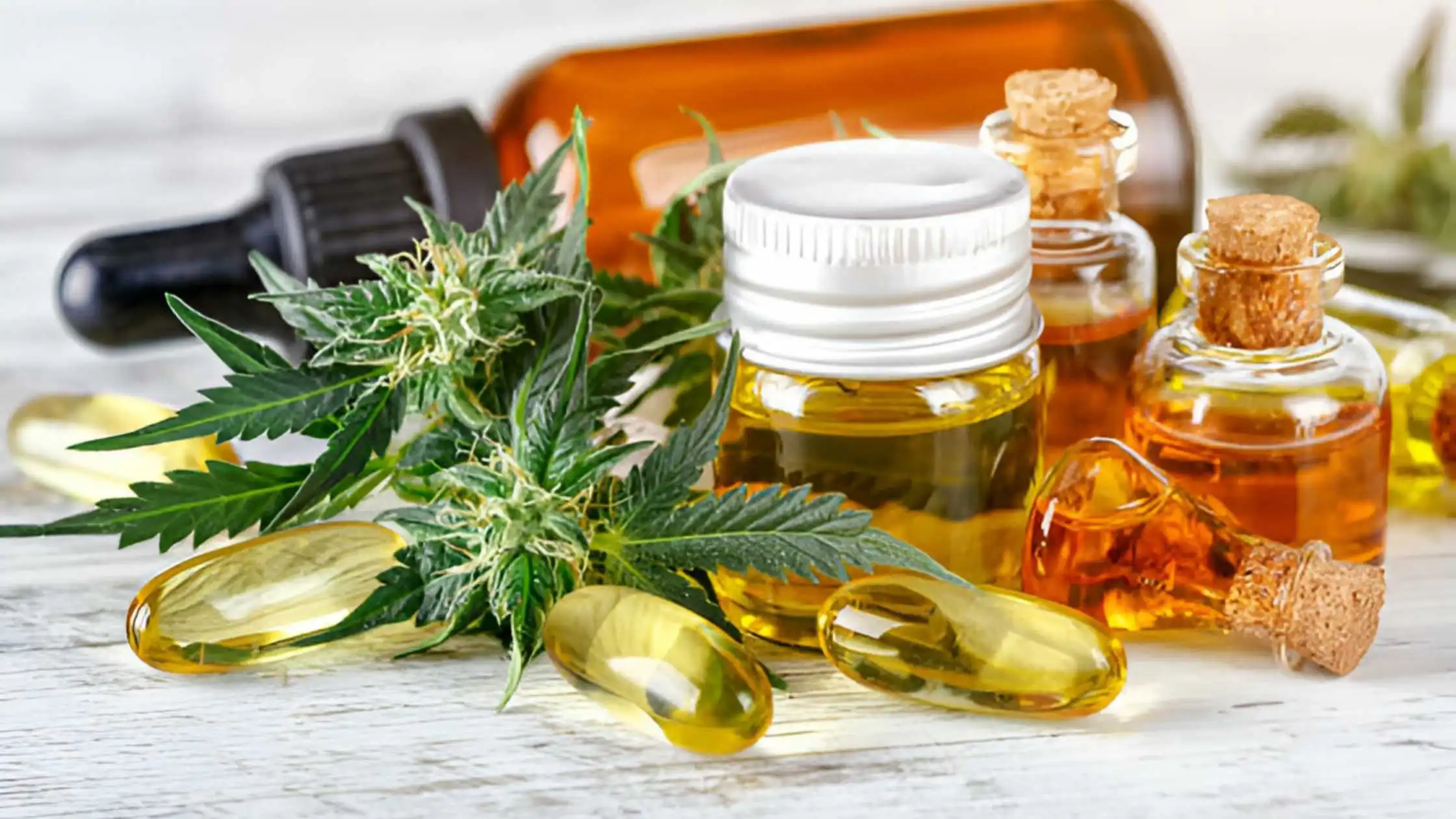CBD – THE UNPRECEDENTED MEDICINE
WHAT IS CBD?
CBD ( CANNABIDIOL ) is a compound that occurs naturally within the resin-filled flower of the cannabis plant. Its use as medicine can be seen throughout history from across different parts of the world, which can be documented for thousands of years.
CBD is a safe and non-addictive substance which comes under more than hundreds of “phytocannabinoids”, which are unique to cannabis plants and bestow the therapeutic application of the plant’s cannabinoid profile. Another closely related phytocannabinoid that is medicinally active is THC ( tetrahydrocannabinol ), which is psychoactive and has properties that induce a “high”, i.e. a euphoric state of mind.
Both CBD and THC have significant therapeutic attributes. But unlike THC, CBD does not make a person feel “stoned” or intoxicated. That’s because CBD and THC act differently on different receptors in the brain and body. However, CBD has been found to reduce or neutralize the psychoactive effects of THC, which helps people get the benefits of cannabis as a medicine without the high or with less of a high. CBD is therapeutically potent as well as non-intoxicating, which makes it perfect for consuming as oil, which is quite appealing to people with various problems who are hesitant to try cannabis.
HOW DOES CBD WORK?
We first need to understand the endocannabinoid system to understand how CBD works in our body. The human body is a complex piece of machinery with many chemical processes and mechanisms that help it function. One such important mechanism is the endocannabinoid system.
The endocannabinoid system plays a crucial role in regulating a broad range of physiological processes that affect our everyday experience – our mood, our energy level, our intestinal fortitude, immune activity, blood pressure, bone density, glucose metabolism, how we experience pain, stress, hunger, and more. This is achieved by the production of endogenous cannabinoids within the body that help bind with various receptors in the central nervous system, which regulates multiple functions of the body.
A key turning point for modern cannabis research came in 1964 when Israeli scientists Raphael Mechoulam and Yechiel Gaoni isolated and identified tetrahydrocannabinol (THC) as the high causer. Mechoulam also elucidated the chemical structure of several other cannabis components, including cannabidiol (CBD), an intriguing, non-intoxicating molecule. He called these unique botanical compounds “cannabinoids”.
The CB1 receptors are specialized protein molecules embedded in cell membranes activated by THC, which became far more abundant in the mammalian brain than any other G-protein-coupled receptor (GPCR). CB1 receptors are
concentrated in the mammalian brain and central nervous system. CB1 signalling would be critical for regulating numerous physiological processes, including the body’s stress response and how we experience pain.
The CB2 receptor is a second cannabinoid receptor throughout the immune system, peripheral nervous system, metabolic tissue, and many internal organs.
Initially reported inAturein 1993, this discovery shed new light on how cannabinoid signalling regulates inflammation and why cannabinoid therapy could be a helpful treatment for a raft of autoimmune diseases. CB2 receptor signalling is implicated in metabolic syndrome, peripheral neuropathy, insulin resistance, liver disease, and other inflammatory conditions.
CB2 receptors are found in all immune cells, including microglia and astrocytes, which modulate immune function in the brain. For the most part, however, CB2 receptors are expressed much less than CB1 in the central nervous system. But CB2 is significantly upregulated (kicks into high gear) in response to a brain injury or a neurodegenerative condition, such as Alzheimer’s.
These CB1 and CB2 receptors and many more formulate the endocannabinoid system. Just as the immune system protects against viruses and other pathogens, the endocannabinoid system protects the brain against overstimulation, inflammation, and trauma. Thus, when the endocannabinoid system is poorly functioning, it generally indicates a disease. It is potentially viable that by modulating endocannabinoid system activity, we may have therapeutic effects in almost all diseases affecting humans! This means by modulating the endocannabinoid system
and enhancing endocannabinoid tone, CBD and THC can slow or, in some cases, stop disease progression.
CBD is a molecule, not a miracle. Many people could benefit significantly from legal access to a wide range of cannabis remedies, not just low-THC or no-THC products. CBD alone may not always do the trick. There is compelling evidence that CBD works best in combination with THC and the full spectrum of other cannabis components. What works for you may not work for someone else, as CBD and THC both affect the endocannabinoid system in different ways due to their very complex nature.
BENEFITS OF CBD:
There are innumerable benefits of taking CBD oil as medicine, which is difficult to summarize in such a short space, but some significant benefits are listed below.
– Anxiety Relief
CBD may be able to help you manage anxiety. Researchers think it may change how your brain’s receptors respond to serotonin, a chemical linked to mental health. Receptors are tiny proteins attached to your cells that receive chemical messages and help your cells respond to different stimuli. One study found that a 600mg dose of CBD helped people with social anxiety give a speech. Other early studies done with animals have shown that CBD may help relieve anxiety by:
● reducing stress
● decreasing physiological effects of anxiety, such as an increased heart rate
● improving symptoms of post-traumatic stress disorder (PTSD)
●inducing sleep in cases of insomniaAnti-Seizure
CBD has been in the news before as a possible treatment for epilepsy. Research is still in its early days. Researchers are testing how much CBD can reduce the number of seizures in people with epilepsy and how safe it is. Cannabidiol research offers hope for seizure disorders, and research is currently being conducted to better understand its use.
A 2016 study involved 214 people with epilepsy. The participants added oral doses of 2 to 5mg of CBD per day to their existing anti-epilepsy medications. The researchers monitored the participants for 12 weeks, recording any negative side effects and checking on the frequency of their seizures. Overall, participants had 36.5 per cent fewer seizures per month.
– Neuroprotective
Researchers are looking at a receptor located in the brain to learn about the ways that CBD could help people with neurodegenerative disorders, which are diseases that cause the brain and nerves to deteriorate over time. This receptor is known as CB1. Researchers are studying the use of CBD oil for treating:
● Alzheimer’s disease
● Multiple sclerosis (MS)
● Parkinson’s disease
●Stroke
– Pain Relief
The effects of CBD oil on your brain’s receptors may also help you manage pain. Studies have shown that cannabis can offer some benefits when taken after chemotherapy treatments. Other preclinical studies sponsored by the National Institutes of Health are also looking at the role of cannabis in relieving symptoms caused by:
● Arthritis
● Chronic pain
● MS pain
● Muscle pain
● Spinal cord injuries
● Cancer Treatment
Some studies have investigated the role of CBD in preventing cancer cell growth. The National Cancer Institute (NCI) says that CBD may help alleviate cancer symptoms and cancer treatment side effects. The action of CBD that’s promising for cancer treatment is its ability to moderate inflammation and change how cells reproduce. CBD reduces the ability of some types of tumour cells to reproduce.
– Anti-Acne
Acne is a skin condition that arises when dead skin cells, dirt, or excess oil accumulate, clogging the pores. Due to the blocking of P. acnes, or Propionibacterium acnes, the bacteria that live in hair follicles multiply, leading to acne inflammation. The build-up of the bacteria, in turn, causes red blemishes on your skin.
It’s necessary to keep the skin clean and away from bacteria that trigger acne. Using skin oil that won’t clog the skin is also essential. According to research, CBD oil has properties that enable it to stop factors that trigger acne. CBD oil inhibits oil production and has anti-inflammatory properties.
CBD targets the cells that activate acne, thus reducing its effects on acne-prone skin. Unlike prescription drugs, CBD oil targets only problem-causing cells. It allows your skin to heal without you experiencing any form of irritation or dryness on your skin.
– Reduces Signs Of Aging Skin
As you age, your skin, which is the largest organ, also shows signs such as red skin tone, dullness, and wrinkles. It would help to use anti-ageing creams or lotions to keep the skin in perfect condition. Although several products available on the market can reduce the effects of ageing, most of them are not practical, like CBD oil products.
CBD oil plays a vital role in keeping skin hydrated and healthy. Its antioxidant properties allow the products to reduce the visible signs of ageing.
Hemp plants that produce CBD oil contain two fatty acids, Omega 6 and Omega 3, which stimulate the production of collagen and thus prevent excessive water loss. This helps keep skin hydrated and good-looking.
Furthermore, CBD oil is gentle to use with fewer side effects, unlike most medications. CBD oil’s properties stand out from the antioxidants with similar claims. CBD doesn’t just make your skin look better; it promotes overall health.
– Alleviates Psoriasis
Psoriasis is an autoimmune illness that attacks healthy skin cells. The condition accelerates the life cycle of skin cells by causing them to multiply quickly on the surface of the skin. Victims of the disease have patches of abnormal skin due to the extra skin cells forming scales and red spots.
Although Psoriasis can’t spread through body contact, the skin can be hard to handle. Its symptoms cause lots of pain to the sufferer. There are a few methods of dealing with the condition, but most are ineffective. To relieve the victim’s pain, inflammation, and rapid skin cells, CBD oil needs to be reduced, which is something that can deliver.
CBD oil is gaining traction because it works with the body to ease the pain from Psoriasis. It affects the endocannabinoid system, which is responsible for regulating messages relayed by the body, such as the immune system, pain, and mood. It also has
the potential to decrease rapid skin cell multiplication. CBD oil also has an anti-inflammatory feature that is crucial in soothing Psoriasis.
– Helps With Dry Skin
Regardless of the cause, managing dry skin is not easy. When you have dry skin, even maintaining moisture using medications can be hard because there is a temptation to over-moisturize, preventing the skin from producing oil. Dry skin can also lead to pain due to toughness and itchiness.
CBD oil perfectly balances nutrients and substances that nourish and moisturize your skin. It helps to stop the peeling of the skin, rough patches, cuts, and cracks. CBD oil products have anti-inflammatory and moisturizing healing benefits.
The advantage of CBD oil is that it doesn’t affect the functioning of your sebaceous glands. The oil instead interacts with your skin glands, regulating oil production. As a result, it doesn’t just help your skin to prevent the overproduction of oil; it also helps dry skin to increase oil production.
The anti-inflammatory properties of CBD oil stimulate healing in damaged areas caused by skin dryness. So, if you suffer from dry skin, you should try using CBD oil products to bring your skin back to life.
– Manages Eczema
Suffering from eczema can be both stressful and frustrating. The condition often makes its victims’ lives uncomfortable and challenging due to the frequent and intense itchiness. You may even find yourself avoiding certain activities or making significant lifestyle changes, like avoiding spending time in the water or outside, that affect the quality of your life.
Eczema affects about 31.6 percent of Americans. It causes patches of skin to crack, turn red, itchy, and inflame. Despite being common, there is no permanent cure for the disease yet. Scientists are still trying to determine the root cause of eczema and its possible treatment.
However, CBD oil can help condition skin dryness and reduce inflammation. CBD oil is one of the few effective options for handling eczema since it contains anti-inflammatory properties with little to no side effects.
Besides, CBD has a strong relationship with the endocannabinoid system. The endocannabinoid system directly relates to allergic inflammation, which is believed to be the leading cause of eczema. This allows CBD to treat the symptoms of the condition and prevent new ones.
Numerous other chronic conditions can be treated using CBD, found here.
CBD has yet to be fully discovered by scientists, and its innumerable benefits have yet to be realized. But one thing is clear: as we move ahead in these modern times, where technology and laws are ever-changing to meet the new needs of humanity, it will not be long before this miracle is widely accepted for its truth and made available for all kinds of therapeutic benefits that can be achieved by using CBD-derived products. There is no such alternative to CBD, as science has barely scratched the surface.
Disclaimer: This article is originally published on indiahemporganics





